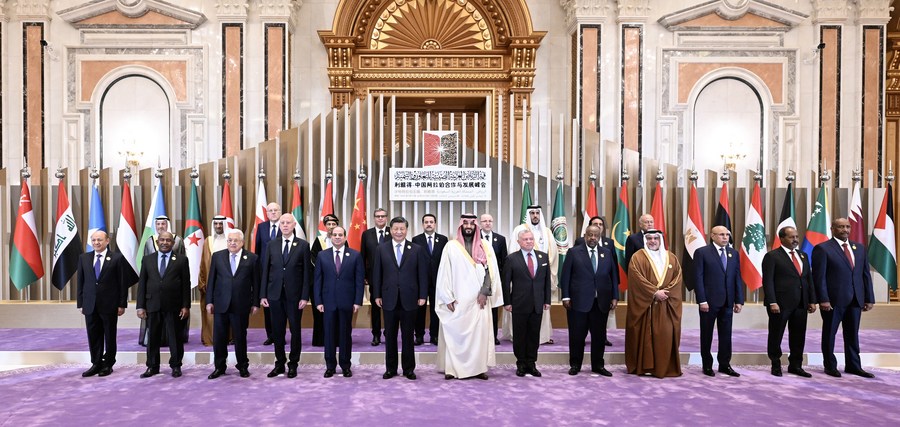By Bradley Blankenship
Through Chinese mediation, the governments of Iran and Saudi Arabia agreed on March 10 to reestablish diplomatic relations and reopen embassies after years of bitter rivalry in the Middle East region. This is a diplomatic breakthrough and one that deserves reflection over Beijing's role in advancing global peace for the future.
Prior to March 10, the two countries were engulfed in a bitter sectarian rivalry. The predominantly Sunni Saudi Arabia and Shia Iran were rivals to the point that they had engaged in proxy conflicts wherever a conflict sprung up, whether in Syria or Yemen. The two were essentially at war with each other even if it was not spelled out formally.
In Syria, the Saudis feared the spread of Iranian influence through the government of Bashar al-Assad and joined forces with the United States to support his ouster. On the other side, Iran, through military groups such as the Lebanese Hezbollah, fought back against Saudi-American proxies to prop up Assad's government, which still survives after nearly a decade of a brutal war.
And in Yemen, the conflict between the Saudi-backed government and the Houthi rebels reportedly supported by Tehran has been one of the world's greatest humanitarian crises since its inception and has led to mass starvation and preventable disease outbreaks.
Accordingly, the resumption of relations between Riyadh and Tehran can wind down both conflicts and foster win-win cooperation in place of proxy wars that benefit foreign countries including the United States. Washington had been the primary beneficiary of division and sectarian conflict in the region, exploiting the situation to advance its own interests. With this settled, the Arab world could unite and, as Saudi Crown Prince Muhammed bin Salman said, make it the "new Europe" in terms of prosperity and collaboration.

Leaders pose for a group photo at the first China-Arab States Summit in Riyadh, Saudi Arabia, December 9, 2022. [Photo/Xinhua]
Beijing had worked hard behind the scenes to make this possible. In December 2022, Chinese President Xi Jinping visited Saudi Arabia to meet Arab leaders. Earlier that year, "China penned a historic, 25-year agreement with Iran that will see the two countries cooperate on many fields, including trade, economics and transportation," while signing "over 20 initiatives, including a strategic partnership agreement that will harmonize the [Saudi] Kingdom's Vision 2030 with China-proposed Belt and Road Initiative."
China had created a framework for non-political economic cooperation between the two long-standing rivalries, which was similar to how the European Union was formed. Likewise, Beijing had presented a multi-point Middle East peace plan that was well-received by local countries and governments. Apparently, "it turns out that win-win cooperation happens to be the most viable form of diplomacy in the emerging multipolar world, since it is the most logical."
Beijing was setting the stage to end the regional power conflict between Tehran and Riyadh. And yet the power of win-win cooperation and non-ideological, non-sectarian partnership shined through. Both sides of the Persian Gulf have realized that it was in their best interest to end destructive conflicts and work together for a shared future after the last several decades of destructive U.S. adventurism in the region. Both sides recognize that they were pawns in Washington's greater ambitions.
This example could set the stage for deeper political integration in other regions, including Latin America, where long-standing political and ideological differences have fueled proxy wars. Many countries in that region are calling for a non-political union of states, independent of ideology, in the name of economic cooperation. Additionally, China's peace plan for the Ukraine crisis demonstrates Beijing's peaceful influence, which could win the day.
Both literally and figuratively, China is building bridges. For the Middle East region, this weekend should be a joyous celebration. Two bitter regional rivals have buried the hatchet over sectarian division and have joined together in a spirit of collaboration, for a shared future and collective prosperity.
The author is a Prague-based American journalist, political analyst and freelance reporter.

 中文
中文



